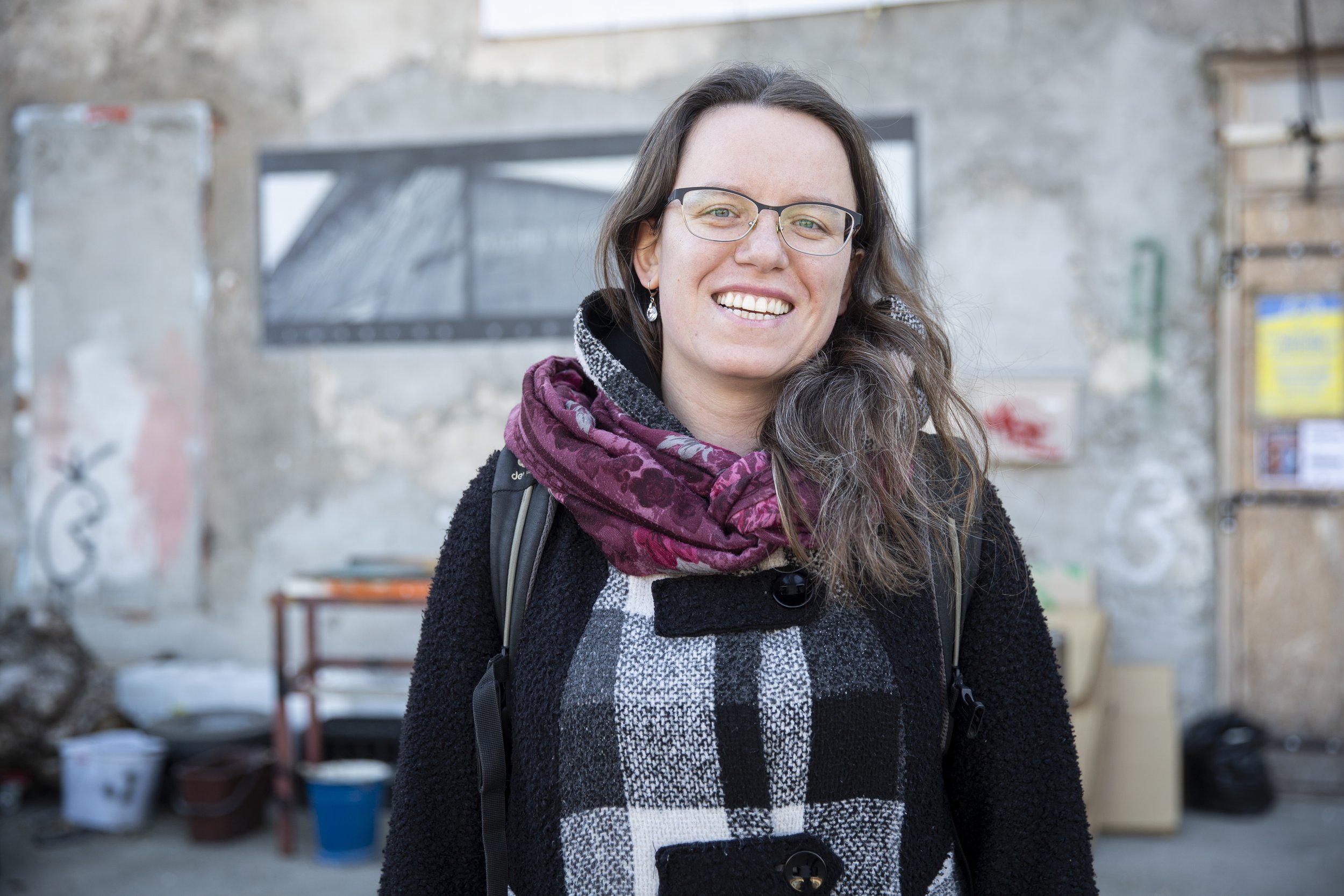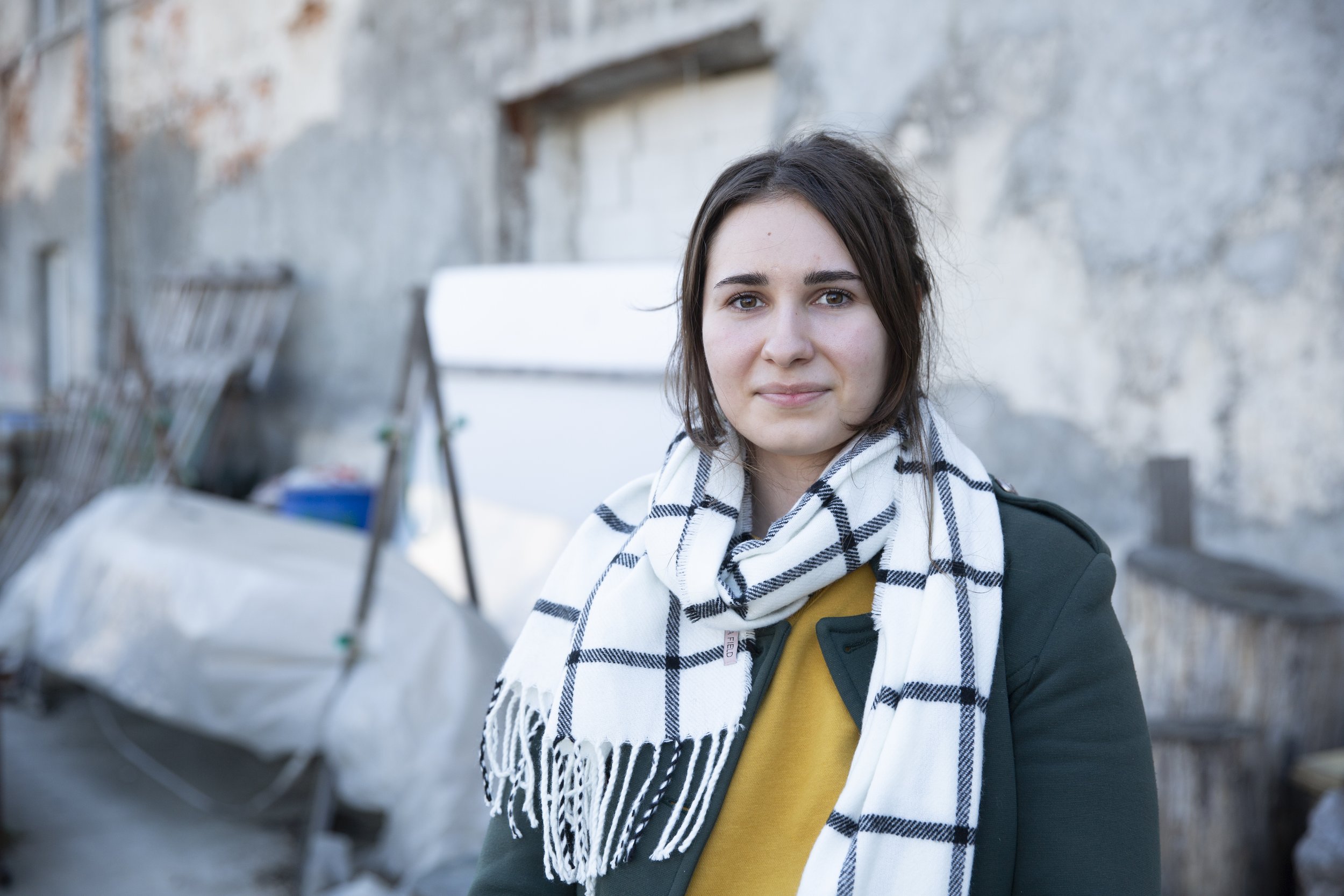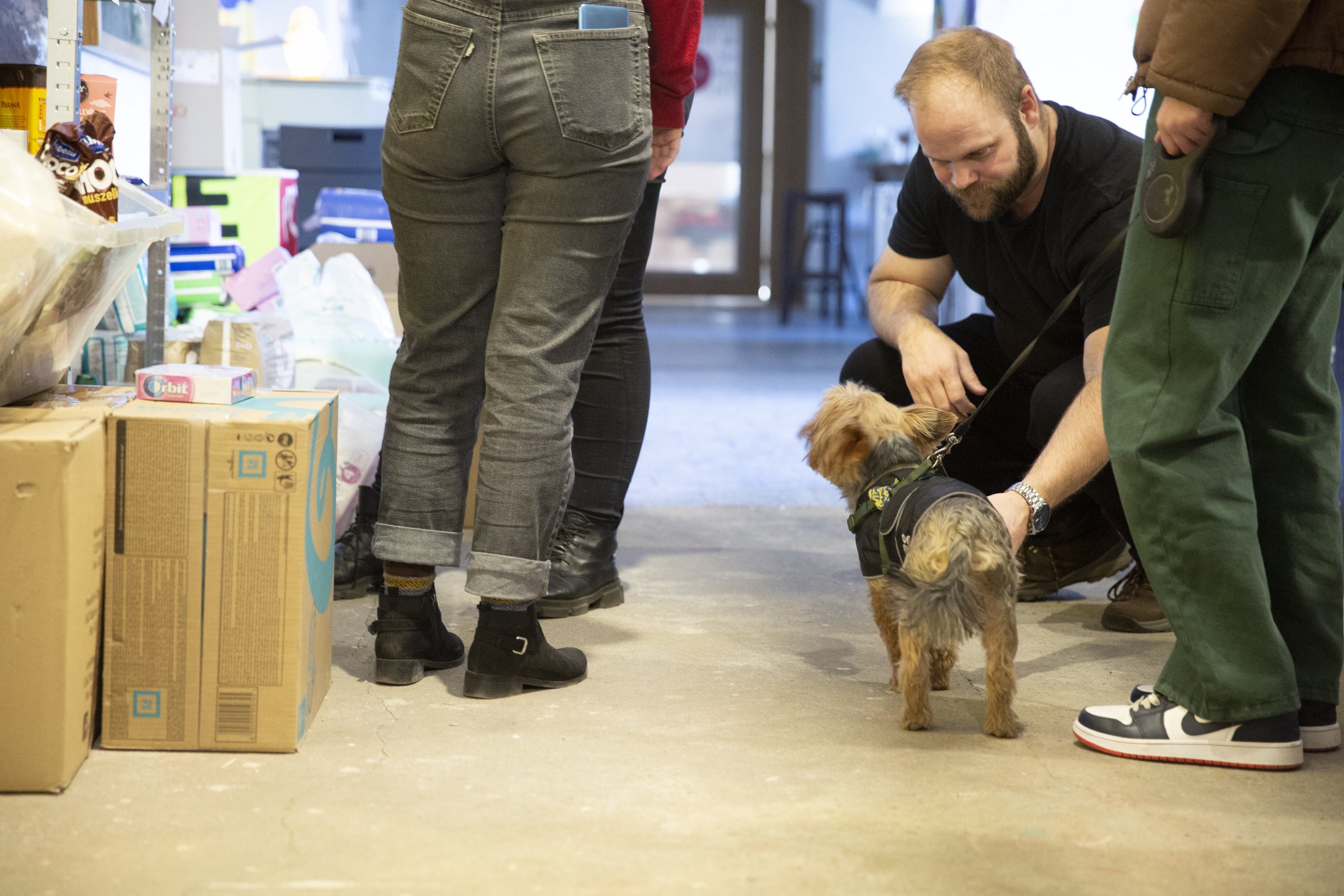Poland has been unusual in its response to Ukrainian refugees. About 2 million have entered the country and haven’t necessarily moved on. There are no refugee camps, no stadiums filled with hundreds and thousands of people - rather they’ve mostly been absorbed by individual Polish families, their own Ukrainian relatives, hotels, and makeshift hostels. The difference between the treatment of the refugees on the Belarussian border and the Ukrainian border is not quickly overlooked and is often brought up. The thing I’ve heard the most is - the attack on Ukraine is an attack on Poland. Ukraine and Poland have a mixed past and the borders separating the two countries have been fluid, so, in many ways they are versions of each other speaking two different languages. The fear here is real, and for many diving head firs into refugee assistance is a way to stave off the worst thoughts about what might still happen in this war.
One of the NGOs I was directed to - and I’m not even sure if it’s an official NGO- is called Soup for Ukraine. It’s in an old salt warehouse which now houses artist’s studios. A common space on the ground floor was donated by the artists that occupy that area and Soup for Ukraine has established their temporary home there. The striking thing about the help being given to refugees is it’s ground up- it happened so quickly and people mobilized. The idea of Soup for Ukraine is simple- people bring in soup they cooked and canned at home. The numbers people bring in vary wildly- 2 jars, 6 jars, 20 jars. They’re placed on shelves and refugees can come get as many jars as necessary if they have no kitchen where they’re staying, they can warm the soup there and eat it. People hosting refugees can come pick up soup, too. People filter in throughout the day dropping off soup and even sometimes baked goods or picking up soup.
A volunteer drops off a few jars of soup and some home made bread.
Kasia checks the wall of NGOs and other individuals that partner with Soup for Ukraine. She became involved when she saw on Facebook that they needed a printer, she brought hers over and as she says, four hours later she left as a member of the coordinator team.
Dropping off homemade soup
Kasia drops off soup and tells a little about why she makes soup: it’s like helping your own, your neighbors- we all know Ukrainians, we work with them are friends with them- how can you not help?
Karolina is a volunteer and she feels it’s a moral obligation to help, you can’t avoid what’s happening because it’s everywhere. The fight is not just for individual Ukrainians, it’s for Poland, and for the world- but mostly for Poland, the war is so close physically.
Kamila cooked soup once and then decided to stay and volunteer. She helps because she thinks about what it would be like to be in the same situation.
A Ukrainian family picks up soup and some other needed supplies. The twins and their mother are part of a group of seven that are looking for accommodation.
This father and daughter come by with a larger group to Soup for Ukraine.
The group of seven and one pup that are looking for a place to stay. The woman on the far right had to leave her son in Ukraine because he was of the age that he was required to stay and fight.
The building where Soup for Ukraine has space.
Another shot of the room where Soup for Ukraine has space.
Volunteers hang out with the dogs brought by refugees.



















